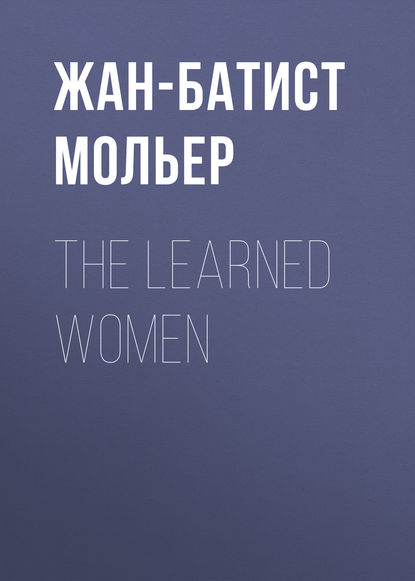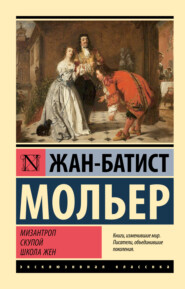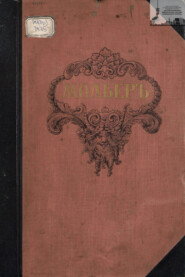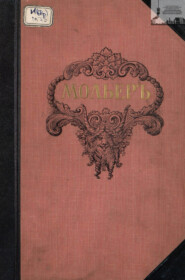По всем вопросам обращайтесь на: info@litportal.ru
(©) 2003-2024.
✖
The Learned Women
Год написания книги
2017
Настройки чтения
Размер шрифта
Высота строк
Поля
CLI. I will do so with all diligence. I only waited for this kind permission from you.
ARM. You triumph, sister, and seem to fancy that you thereby give me pain.
HEN. I, sister? By no means. I know that the laws of reason will always have full power over your senses, and that, through the lessons you derive from wisdom, you are altogether above such weakness. Far from thinking you moved by any vexation, I believe that you will use your influence to help me, will second his demand of my hand, and will by your approbation hasten the happy day of our marriage. I beseech you to do so; and in order to secure this end…
ARM. Your little mind thinks it grand to resort to raillery, and you seem wonderfully proud of a heart which I abandon to you.
HEN. Abandoned it may be; yet this heart, sister, is not so disliked by you but that, if you could regain it by stooping, you would even condescend to do so.
ARM. I scorn to answer such foolish prating.
HEN. You do well; and you show us inconceivable moderation.
SCENE III. – CLITANDRE, HENRIETTE
HEN. Your frank confession has rather taken her aback.
CLI. She deserves such freedom of speech, and all the haughtiness of her proud folly merits my outspokenness! But since you give me leave, I will go to your father, to…
HEN. The safest thing to do would be to gain my mother over. My father easily consents to everything, but he places little weight on what he himself resolves. He has received from Heaven a certain gentleness which makes him readily submit to the will of his wife. It is she who governs, and who in a dictatorial tone lays down the law whenever she has made up her mind to anything. I wish I could see in you a more pliant spirit towards her and towards my aunt. If you would but fall in with their views, you would secure their favour and their esteem.
CLI. I am so sincere that I can never bring myself to praise, even in your sister, that side of her character which resembles theirs. Female doctors are not to my taste. I like a woman to have some knowledge of everything; but I cannot admire in her the revolting passion of wishing to be clever for the mere sake of being clever. I prefer that she should, at times, affect ignorance of what she really knows. In short, I like her to hide her knowledge, and to be learned without publishing her learning abroad, quoting the authors, making use of pompous words, and being witty under the least provocation. I greatly respect your mother, but I cannot approve her wild fancies, nor make myself an echo of what she says. I cannot support the praises she bestows upon that literary hero of hers, Mr. Trissotin, who vexes and wearies me to death. I cannot bear to see her have any esteem for such a man, and to see her reckon among men of genius a fool whose writings are everywhere hissed; a pedant whose liberal pen furnishes all the markets with wastepaper.
HEN. His writings, his speeches, in short, everything in him is unpleasant to me; and I feel towards him as you do. But as he possesses great ascendancy over my mother, you must force yourself to yield somewhat. A lover should make his court where his heart is engaged; he should win the favour of everyone; and in order to have nobody opposed to his love, try to please even the dog of the house.
CLI. Yes, you are right; but Mr. Trissotin is hateful to me. I cannot consent, in order to win his favour, to dishonour myself by praising his works. It is through them that he was first brought to my notice, and I knew him before I had seen him. I saw in the trash which he writes all that his pedantic person everywhere shows forth; the persistent haughtiness of his presumption, the intrepidity of the good opinion he has of his person, the calm overweening confidence which at all times makes him so satisfied with himself, and with the writings of which he boasts; so that he would not exchange his renown for all the honours of the greatest general.
HEN. You have good eyes to see all that.
CLI. I even guessed what he was like; and by means of the verses with which he deluges us, I saw what the poet must be. So well had I pictured to myself all his features and gait that one day, meeting a man in the galleries of the Palace of Justice [footnote: the resort of the best company in those days.], I laid a wager that it must be Trissotin – and I won my wager.
HEN. What a tale!
CLI. No, I assure you that it is the perfect truth. But I see your aunt coming; allow me, I pray you, to tell her of the longings of my heart, and to gain her kind help with your mother.
SCENE IV. – BÉLISE, CLITANDRE
CLI. Suffer a lover, Madam, to profit by such a propitious moment to reveal to you his sincere devotion…
BEL. Ah! gently! Beware of opening your heart too freely to me; although I have placed you in the list of my lovers, you must use no interpreter but your eyes, and never explain by another language desires which are an insult to me. Love me; sigh for me; burn for my charms; but let me know nothing of it. I can shut my eyes to your secret flame, as long as you keep yourself to dumb interpreters; but if your mouth meddle in the matter, I must for ever banish you from my sight.
CLI. Do not be alarmed at the intentions of my heart. Henriette is, Madam, the object of my love, and I come ardently to conjure you to favour the love I have for her.
BEL. Ah! truly now, the subterfuge shows excellent wit. This subtle evasion deserves praise; and in all the romances I have glanced over, I have never met with anything more ingenious.
CLI. This is no attempt at wit, Madam; it is the avowal of what my heart feels. Heaven has bound me to the beauty of Henriette by the ties of an unchangeable love. Henriette holds me in her lovely chains; and to marry Henriette is the end of all my hopes. You can do much towards it; and what I have come to ask you is that you will condescend to second my addresses.
BEL. I see the end to which your demand would gently head, and I understand whom you mean under that name. The metaphor is clever; and not to depart from it, let me tell you that Henriette rebels against matrimony, and that you must love her without any hope of having your love returned.
CLI. But, Madam, what is the use of such a perplexing debate? Why will you persist in believing what is not?
BEL. Dear me! Do not trouble yourself so much. Leave off denying what your looks have often made me understand. Let it suffice that I am content with the subterfuge your love has so skilfully adopted, and that under the figure to which respect has limited it, I am willing to suffer its homage; always provided that its transports, guided by honour, offer only pure vows on my altars.
CLI. But…
BEL. Farewell. This ought really to satisfy you, and I have said more than I wished to say.
CLI. But your error…
BEL. Leave me. I am blushing now; and my modesty has had much to bear.
CLI. May I be hanged if I love you; and… [Footnote: Molière ends this line with sage, with, apparently, no other motive than to find a rhyme to davantage.]
BEL. No, no. I will hear nothing more.
SCENE V. – CLITANDRE (alone)
Deuce take the foolish woman with her dreams! Was anything so preposterous ever heard of? I must go and ask the help of a person of more sense.
ACT II
SCENE I. – ARISTE (leaving CLITANDRE, and still speaking to him)
Yes; I will bring you an answer as soon as I can. I will press, insist, do all that should be done. How many things a lover has to say when one would suffice; and how impatient he is for all that he desires! Never…
SCENE II. – CHRYSALE, ARISTE
ARI. Good day to you, brother.
CHRY. And to you also, brother.
ARI. Do you know what brings me here?
CHRY. No, I do not; but I am ready to hear it, if it pleases you to tell me.
ARI. You have known Clitandre for some time now?
CHRY. Certainly; and he often comes to our house.
ARI. And what do you think of him?
CHRY. I think him to be a man of honour, wit, courage, and uprightness, and I know very few people who have more merit.
ARI. A certain wish of his has brought me here; and I am glad to see the esteem you have for him.
CHRY. I became acquainted with his late father when I was in Rome.
ARI. Ah!

















